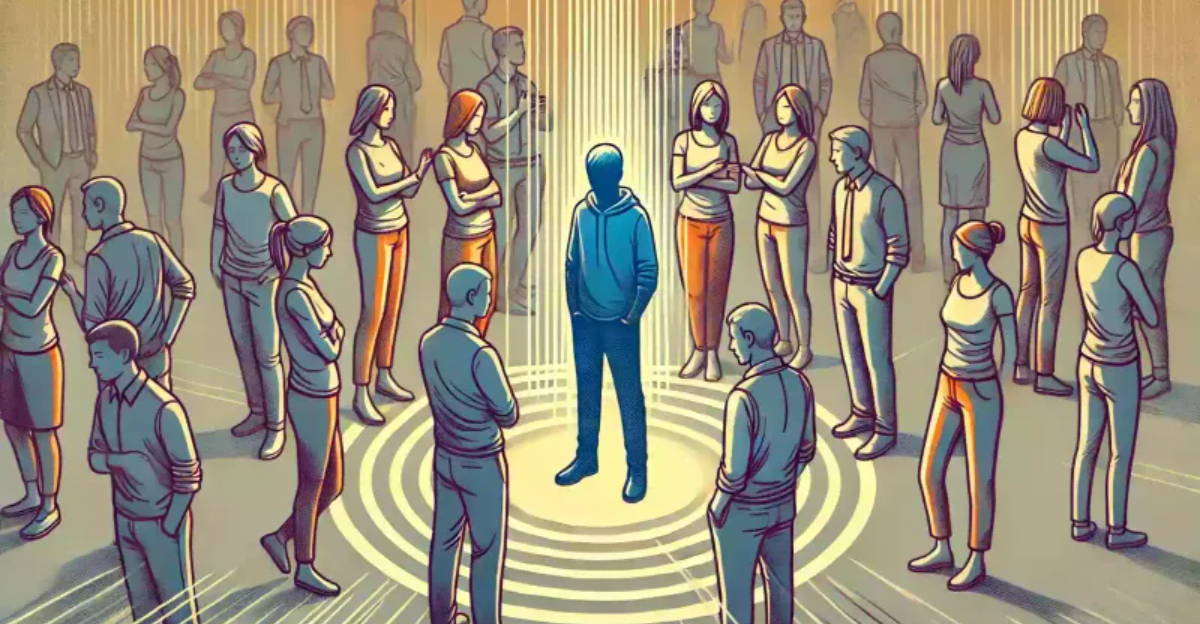18 Reasons Why Narcissistic People Are More Likely To Feel Ostracized And Misread Social Cues
Narcissists — forever the main characters in a movie only they seem to be watching.
At first glance, they’ve got it all: confidence cranked up to eleven, a charm that could sell sand in a desert and a selfie game so strong it should come with a warning label. But peel back the layers of curated perfection and things start to get… complicated.
Despite the spotlight they swear they don’t crave (spoiler: they do), narcissistic individuals find themselves feeling left out, misunderstood, or weirdly on the social sidelines. Why? Because behind that larger-than-life persona is a tangled web of misread signals and a constant chase for validation.
Can you think of 18 surprisingly human reasons why narcissists struggle with feeling ostracized? I can and trust me, it’s not just because people don’t “get” them.
1. Lack of Genuine Connection

Let me break it like this: narcissists find it challenging to form genuine connections due to their self-focused nature. They enter social situations looking for admiration rather than mutual understanding, which leads to superficial relationships. When others sense this, they distance themselves.
Imagine: you stand at a party surrounded by laughter and chatter, yet you feel like you’re on the outside looking in. That’s the reality for many narcissists. Their interactions lack depth, which makes it hard for real friendships to develop.
Conversations become one-sided, since the focus is on their achievements or interests. It leaves little room for others to share. This lack of reciprocity leads to social exclusion. The narcissist, in turn, attributes this to others’ inability to understand or appreciate them.
2. Constant Need for Validation

The need for validation drives them to seek attention relentlessly. They might dominate conversations or boast about their achievements, all the while hoping for praise. However, this behavior pushes others away, as it comes across as self-centered.
Picture someone at a coffee shop, anxiously checking their phone for likes and comments. I know. Not so rare an image these days. That craving for external approval blind them to how they are perceived by others. When validation isn’t forthcoming, they feel rejected and misunderstood.
They are unable to see the impact of their actions on others. So, they interpret the lack of engagement as deceit or jealousy from others, further alienating themselves.
3. Difficulty Understanding Empathy

It’s hard for them to understand others’ feelings and needs. They struggle with empathy. This results in social cues being misread, as they are unable to grasp the emotions conveyed by others.
Remember a scene where friends are comforting someone who’s visibly upset? There’s always the one person who stands aside confused and detached. He totally misses the subtle emotional exchanges. This leads to feelings of isolation.
Without the ability to empathize, they interpret others’ reactions in a self-referential way. That’s why they assume hostility or disinterest where there is none.
4. Overemphasis on Image
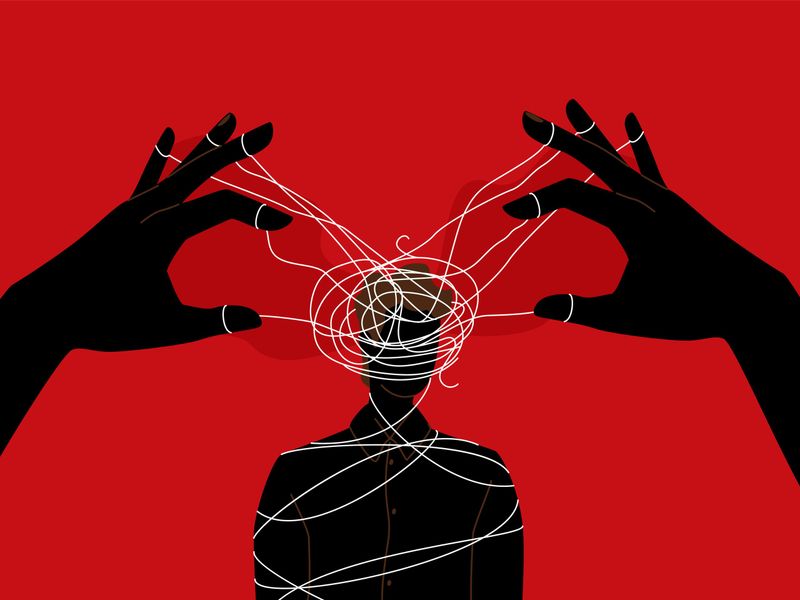
The obsession with maintaining a perfect image can preoccupy narcissists. You know what they miss out instead? Genuine social interactions. They focus so much on how they are perceived that they overlook the importance of authentic connections.
It’s that girl (or boy — just to be clear, it goes both ways) standing in front of a mirror obsessively adjusting every detail of their appearance. This overshadows real, meaningful engagement with others.
They misread others’ lack of interest in their appearance as disrespect or envy.
5. Fear of Vulnerability

Here comes their biggest fear: vulnerability. They perceive it as a weakness. This prevents them from opening up to others, which is essential for forming deep connections. Instead, they maintain a facade of strength.
See the picture above? It’s similar to that. Forget that it’s Captain America on it. See a person holding a shield protecting himself from others. That’s narcissistic defensiveness. And it can prevent sincere interactions in a heart beat.
Their reluctance to be vulnerable means they miss out on emotional intimacy. Because they look on others’ attempts to connect as invasive or critical.
6. Inability to Handle Criticism

“How can you possibly find a flaw in me? I mean, I’m absolutely superior.” The thought every narcissist thinks first thing when they get up in the morning. And when faced with feedback, they react defensively. Because, you know… I’m fabulous. (it’s sarcasm, by the way.)
Their frustration is palpable. Instead of reflecting on the feedback, they dismiss it, believing it’s unwarranted. This attitude leads to strained relationships.
This inability creates a barrier between them and others. They feel like they are being unfairly judged. Their point of view: criticism is personal attack.
7. Exaggerated Sense of Entitlement

They deserve special treatment. They do, believe me. Just not the one they expect. But, behaviors such as cutting in line or monopolizing conversations calls for some hard worded truth.
That guy at a coffee shop, confidently cutting in line, ignoring the irritated looks from others? Yeah, he needs to hear it. Not that I think it can make him understand. Instead it’s more about the enabling effect that the silence gives. That’s my reason for speaking up.
They expect privileges without considering others’ perspectives. When people respond negatively, they interpret it as unfairness or hostility. Nevertheless, if we keep saying “no”, there’s hope that one day they’ll get it.
8. Tendency to Overestimate Abilities

Come on, don’t tell me you didn’t spot this guy from a mile away? Like an inflated ken doll, he overestimates his abilities. So, he dominates discussions and assumes others are captivated by his brilliance. In your dream, buddy.
Their self-assuredness doesn’t match reality. It’s that colleague in the office, whose grandiose gestures and overconfidence are met with unimpressed faces when giving a presentation. The “me, myself and I” guy.
This disconnect between perception and actuality makes them assume approval where there is none. As others disengage, they feel misunderstood. That’s why they attribute the lack of interest to others’ inability to recognize their… oh, so many talents.
9. Manipulative Social Tactics

Uh, this one makes my blood boil. Using manipulative tactics to control social situations to enhance their status. They might feign interest or use charm to gain favor, but these tactics are easily recognized. However, that doesn’t mean it’s any less aggravating.
Like a puppet master, subtly pulling strings in a social setting. That’s their game. But, it’s seen through by those who value authenticity.
When their tactics backfire, they are left feeling ostracized and misunderstood. They think others’ resistance to manipulation is betrayal or jealousy. Oh, please! Don’t insult my sanity!
10. Emotional Manipulation

This is just a continuation from the previous one. Narcissists use this form of manipulation to maintain control in relationships. This involves guilt-tripping or playing on others’ emotions to achieve their goals. Lowest kind of all bad boyfriends/girlfriends.
Can you think of a chess game (the pieces represent different people)? Each move is calculated with a cunning smile. It goes beyond saying that when you recognize this, trust goes down the drain.
When you pull away, he’s not realizing his role in the dynamic. He’s unable to see the impact of his behavior.
11. Self-Sabotage in Relationships
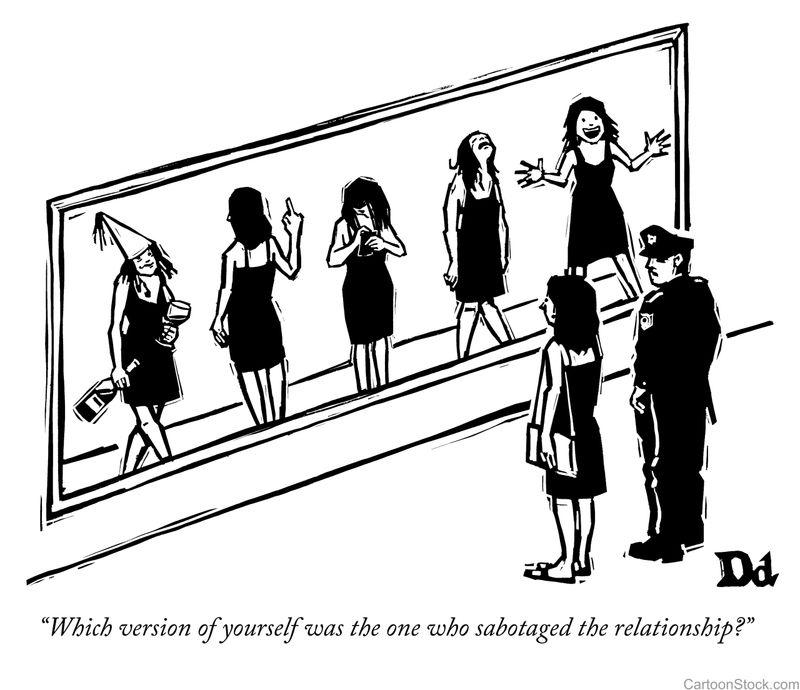
All of the above culminates in self-sabotage in relationships, driven by fear of vulnerability and rejection. This leads to a pattern of pushing people away before they get too close.
Picture a softly shadowed room as scattered fragments of a once heart-shaped keepsake lie around the floor. Each piece forms a quiet mosaic of repeated heartbreak.
Their actions are mistaken for indifference. But what looks like distance is really a quiet attempt to stay safe. Unfortunately, this only deepens their isolation and reinforces the very rejection they’re trying to avoid.
12. Impatience with Others
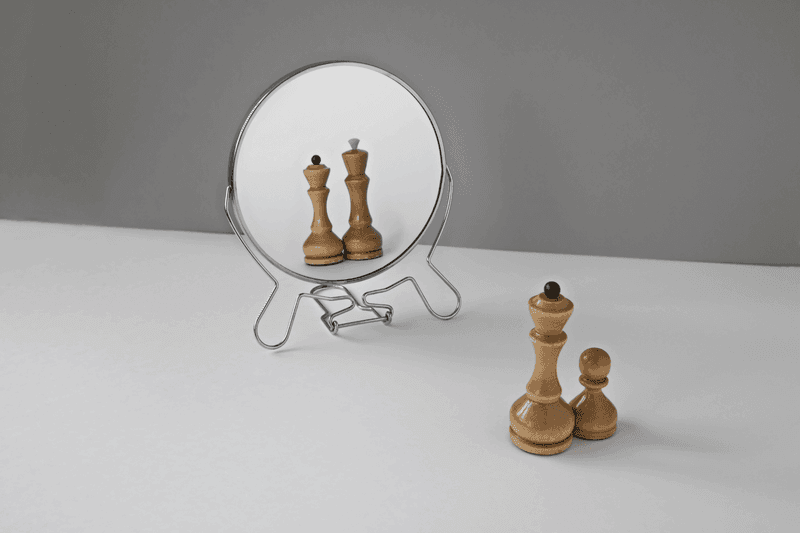
We all have limited patience for others but narcissists bring it to a new level. Especially if they feel their time is being wasted. This impatience directs them to dismissive or rude behavior.
Let me draw a picture with sound in it: a person at a meeting, tapping their foot and constantly checking their watch. Their impatience is perceptible and sends a clear signal of disinterest.
They view others’ annoyance as pettiness rather than a reaction to their discourtesy. The result is a cycle of feeling like a black sheep.
13. Inflexibility in Social Situations

Flexibility, what’s that? They adhere strictly to their own views or plans. No compromise! This rigidity makes them less adaptable in social situations.
Picture a group activity where everyone is engaged, except for one person standing with crossed arms, refusing to participate. Their inflexibility is a barrier to connection.
This stubbornness causes them to misread others’ attempts at engagement as interference. Yet, they feel excluded and isolated when we give up on them.
14. Chronic Insecurity
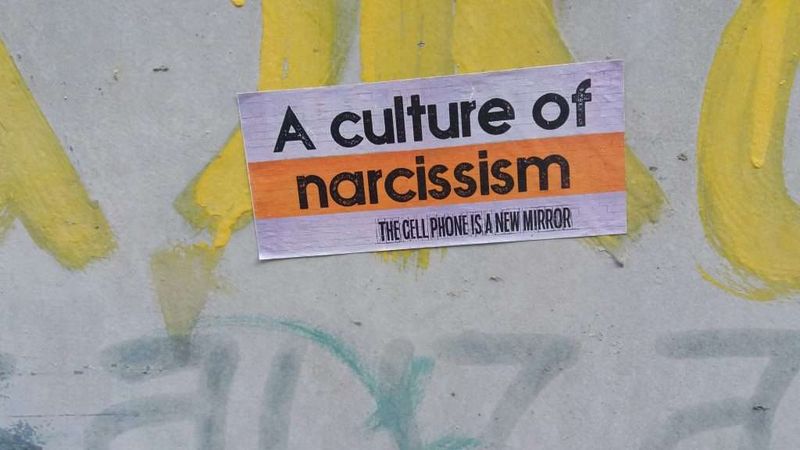
Despite their outward confidence, narcissists harbor deep-seated insecurities. This manifests as arrogance or defensiveness, which pushes people away.
It’s a hard feeling to explain. Perhaps like standing in front of an audience, projecting confidence but feeling exposed and vulnerable inside. This contradiction is what causes misunderstandings.
This prevents them from forming connections, as they misread others’ reactions as threats. And so the cycle of feeling isolated continues.
15. Projecting Insecurities
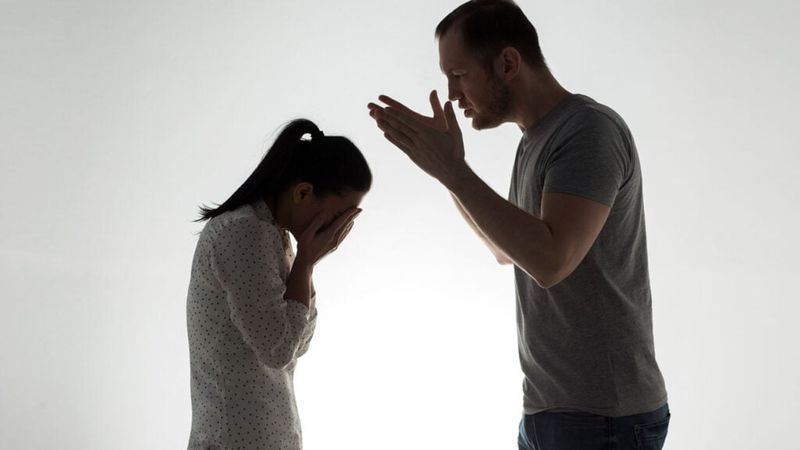
Here’s where it gets serious. They project their insecurities onto others. And that’s a distorted social perception. This looks like criticism or disdain for perceived weaknesses in others.
It’s that mirror room at the carnival. Each mirror reflects a different version of yourself, filled with anger and doubt. This internal struggle is projected outward and complicates social interactions.
Their inability to recognize and address their insecurities makes them perceive hostility where none exists — further alienating themselves.
16. Superficial Charm

A vessel to navigate social situations for narcissists is superficial charm. However, this charm lacks sincerity, and people eventually see through it.
This facade can only sustain relationships for so long. When others recognize the lack of authenticity, they withdraw.
They, however, misinterprets this withdrawal as rivalry, since they fail to see their role in the breakdown of connections.
17. Overreaction to Perceived Slights

Let me ask you this. Have you ever had a boyfriend, girlfriend or just a friend who seemed to take offense at minor comments or actions? If the answer is yes, welcome to the club. Narcissists tend to overreact like that. This hypersensitivity creates tension in social settings.
Similar to a dinner party where a minor comment is blown out of proportion, with exaggerated gestures and expressions. This reaction is eruptive and urges you to back away from those kinds of people.
They turn the situation upside down and interpret others’ discomfort as personal attacks. Instead, it’s simply a reaction to their overreaction.
18. Selective Listening
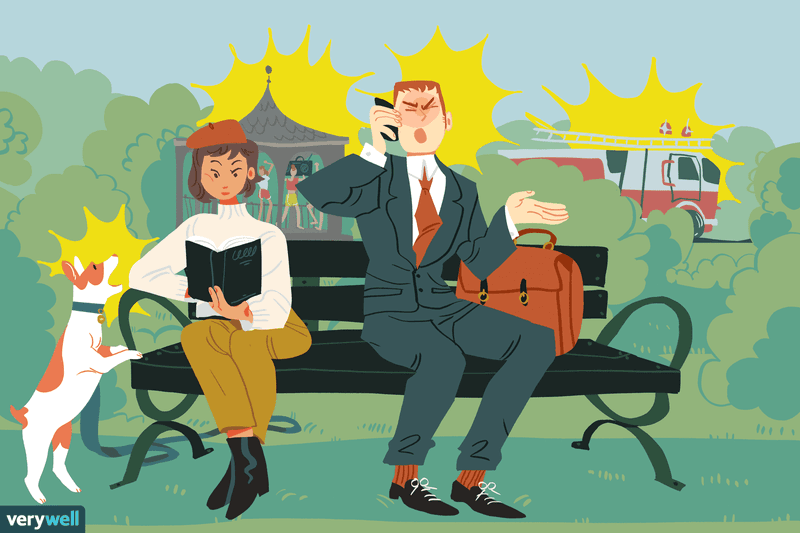
This one comes in handy. Hearing only what aligns with their views or interests. How convenient. And they still wonder why there’s a social disconnect.
Imagine someone wearing headphones, ignoring a group conversation while fixated on their reflection in a window. Spooky image, right? This selective attention isolates them from meaningful exchange.
By brushing off others’ perspectives, they unknowingly build a wall between themselves and genuine connection. That reinforces the lonely echo chamber they didn’t mean to create.

